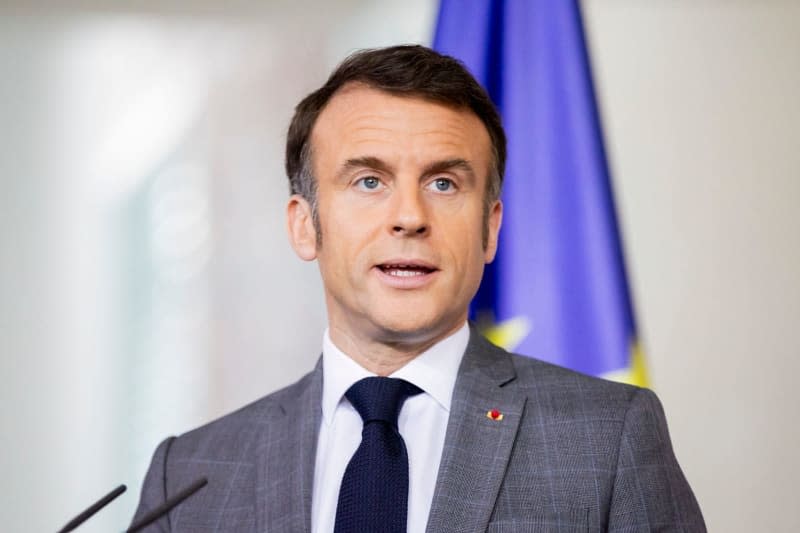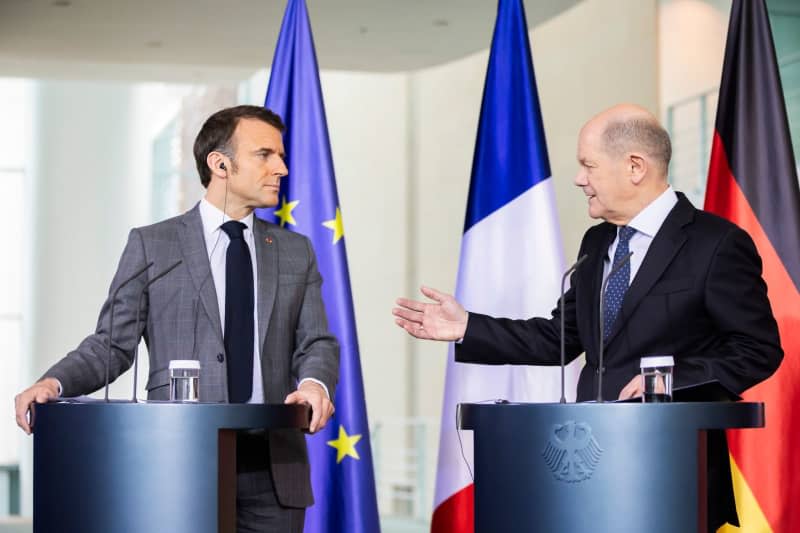Macron: Differences with Scholz over Ukraine about style, not policy

- Oops!Something went wrong.Please try again later.
- Oops!Something went wrong.Please try again later.
Despite recent differences over Ukraine policy, French President Emmanuel Macron does not see himself in conflict with German Chancellor Olaf Scholz, but admits the two have different styles.
"There has never been any trouble between the chancellor and myself. We have a lot in common in terms of objectives and the situation," Macron told the newspaper Le Parisien for a story in its Sunday edition.
"Only the way in which they are translated is different because the strategic cultures of our countries are different," Macron said.
Macron, along with Polish Prime Minister Donald Tusk, met Scholz in Berlin on Friday to discuss Ukraine. Friday's meeting came after Macron's comments three weeks ago, in which he said that Ukraine's supporters should not publicly rule out the deployment of ground troops in Ukraine in the future.
Scholz contradicted him several times in the days that followed and said that he would not send German soldiers to Ukraine. Macron then suggested they meet.
"I wanted to come to Germany very quickly so that there would be no debate about alleged strategic divergences: they don't exist," he told the paper.
Even after the meeting with Scholz, Macron continued to insist that ground troops might be necessary.
"Perhaps at some point - I don't wish it, I won't initiate it - it will be necessary to have operations on the ground, whatever they may be, to counter Russian forces. France's strength is that we can do that," he said.
"Our duty is to prepare for all scenarios,"he said. "I am convinced, by the way, that in some of these scenarios, anyone who is able to do so with their model would assume their responsibilities."
Macron added: "Putin cultivates a discourse of fear. We must not allow ourselves to be intimidated, because we are not dealing with a superpower."


